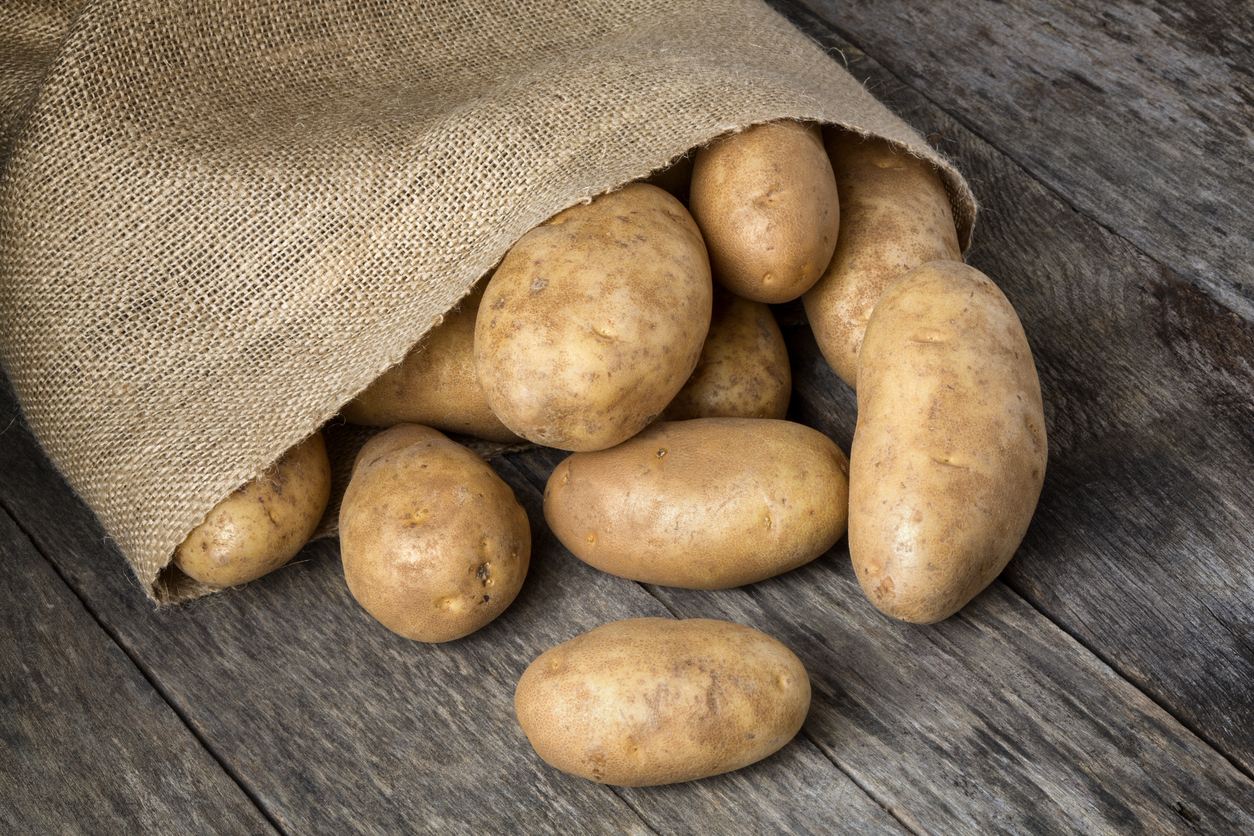Exploring the Economics of Potato Wholesale Prices: Trends, Challenges, and Opportunities
Exploring the Economics of Potato Wholesale Prices: Trends, Challenges, and Opportunities
Potatoes, the humble staple of countless meals around the world, have a fascinating story when it comes to their wholesale prices. From the bustling markets to the global trade networks, understanding the economics behind potato pricing is crucial for farmers, distributors, and consumers alike. In this blog post, we delve deep into the intricate world of potato wholesale prices – exploring the trends that shape them, uncovering the challenges faced by industry players, and unearthing exciting opportunities in this ever-evolving market. So get ready to peel back layers of economic insights as we embark on a journey through spuds and spreadsheets!
Introduction to the Potato Wholesale Market
Introduction to the Potato Wholesale Market
Potatoes are one of the most widely consumed vegetables in the world, with over 376 million metric tons produced annually. The United States is the leading producer and exporter of potatoes, accounting for approximately 20% of global production. With such high demand and production, it is no surprise that there is a significant market for wholesale potato trading.
The potato wholesale market refers to the buying and selling of large quantities of potatoes between growers or farmers and buyers such as supermarkets, restaurants, and food manufacturers. This market operates on a global scale, with countries importing and exporting potatoes to meet their domestic demands.
In this section, we will explore the key players in the potato wholesale market, its structure, distribution channels, and factors that influence prices. Understanding these aspects can help us gain insights into the trends, challenges, and opportunities within this dynamic market.
Key Players in the Potato Wholesale Market
The primary players in the potato wholesale market are growers or farmers who produce potatoes on a commercial scale. They are responsible for planting, cultivating, harvesting, sorting, grading, packaging, and transporting potatoes to different markets. These growers may operate independently or belong to cooperatives or associations that allow them to pool resources and negotiate better deals with buyers.
Historical Trends in Potato Wholesale Prices
Historical trends in potato wholesale prices play a crucial role in understanding the current state of the market and predicting future developments. The fluctuations in potato prices are often influenced by various factors such as supply and demand, weather conditions, government policies, and global trade.
One of the most notable historical trends in potato wholesale prices is their overall increase over time. According to data from the United States Department of Agriculture (USDA), the average price for a hundredweight (cwt) of potatoes has increased from $8.23 in 1950 to $12.08 in 2021. This represents an almost 50% increase over the past seven decades.
The continuous rise in potato prices can be attributed to several factors. One of them is the increasing demand for potatoes due to their versatility and nutritional value. Potatoes are consumed all around the world and are a staple food source for many countries, including China, India, and Russia. As populations grow and economies develop, there is an increased demand for this versatile tuber, leading to higher prices.
Another factor that has contributed to the rising trend in potato wholesale prices is climate change. Extreme weather events like droughts or floods can significantly impact crop yields and disrupt supply chains, ultimately driving up prices.
On top of these factors, government policies also play a significant role in shaping historical trends in potato prices. For instance, subsidies or import tariffs on potatoes can directly influence their availability and pricing on both domestic and international markets.
Factors Influencing Potato Wholesale Prices
Potato wholesale prices are influenced by a variety of factors, both internal and external, that impact the supply and demand of this staple crop. In this section, we will delve into the key factors that play a significant role in determining potato wholesale prices.
1. Supply and Demand: Like any other commodity, potato prices are largely determined by the principle of supply and demand. When there is an increase in the production of potatoes, due to favorable weather conditions or improved farming techniques, the supply of potatoes increases leading to lower wholesale prices. On the other hand, when there is a shortage of potatoes due to natural disasters or reduced crop yield, the demand for potatoes may exceed the available supply resulting in higher wholesale prices.
2. Trade Policies: Government policies related to trade can also affect potato wholesale prices. Countries that heavily rely on imported potatoes may experience fluctuations in their domestic potato market based on changes in import tariffs or quotas set by their government. Similarly, export restrictions imposed by major potato-producing countries can also impact global potato prices.
3. Transportation Costs: The cost of transporting potatoes from farms to wholesalers also plays a crucial role in setting wholesale prices. Higher transportation costs due to fuel price hikes or infrastructure challenges can drive up potato wholesale prices as farmers have to cover these expenses when selling their produce.
4. Storage and Processing Facilities: Potatoes are perishable commodities; hence proper storage facilities are necessary for maintaining quality and extending shelf life before reaching wholesalers’ hands.
Challenges Faced by Potato Wholesalers
Potato wholesalers play a crucial role in the potato supply chain, connecting potato farmers with retailers and consumers. However, operating as a potato wholesaler comes with its own set of challenges. In this section, we will explore some of the key challenges faced by potato wholesalers and how they impact the economics of wholesale prices.
1. Fluctuations in Supply and Demand: One of the main challenges faced by potato wholesalers is dealing with fluctuations in supply and demand. As potatoes are a seasonal crop, their availability can vary significantly throughout the year. This can be due to various factors such as weather conditions, crop diseases, or changes in consumer preferences.
When there is an oversupply of potatoes in the market, wholesalers may struggle to find buyers for their stock and end up selling at lower prices to clear their inventory. On the other hand, during a shortage of potatoes, wholesalers may have to pay higher prices to secure enough supply for their customers. These fluctuations in supply and demand make it challenging for wholesalers to maintain stable pricing strategies.
2. Price Volatility: In addition to fluctuations in supply and demand, potato wholesale prices are also affected by price volatility caused by external factors such as transportation costs, labor wages, fuel prices, trade policies, and currency exchange rates. For example, if there is an increase in fuel prices or new trade tariffs imposed on imported potatoes from other countries, it can drive up wholesale prices for domestic varieties.
Opportunities for Growth and Profitability in the Potato Industry
The potato industry has always been a significant contributor to the global economy, with its versatile use in various culinary dishes and its widespread cultivation around the world. In recent years, the demand for potatoes has only increased, making it a market ripe with opportunities for growth and profitability. In this section, we will delve into some of the key factors that are driving this growth and discuss potential avenues for businesses looking to capitalize on this trend.
1. Growing Demand From Emerging Markets:
One of the primary drivers of growth in the potato industry is the increasing demand from emerging economies such as China and India. These countries have witnessed rapid economic development in recent years, leading to an increase in disposable income among their populations. As a result, there has been a surge in demand for potatoes as a staple food item, creating new markets for exporters and wholesalers.
2. Diversification of Potato Products:
Traditionally, potatoes were primarily used for basic food items like French fries or mashed potatoes. However, with changing consumer preferences and dietary trends towards healthier options, there has been a significant diversification in potato-based products such as chips and crisps made from baked rather than fried potatoes. This shift presents an opportunity for businesses to tap into new markets by offering innovative potato products that cater to these evolving demands.
Impact of Global Events on Potato Wholesale Prices
Global events, such as natural disasters and political changes, have a significant impact on potato wholesale prices. This is because potatoes are a highly traded commodity, with production and consumption taking place in various countries around the world. Any disruptions or shifts in these global markets can lead to fluctuations in supply and demand, ultimately affecting the prices of potatoes.
One major factor that can influence potato wholesale prices is weather-related events. Droughts, floods, and other extreme weather conditions can significantly affect potato crops, leading to lower yields and reduced quality. In turn, this can result in higher prices as the supply decreases. For example, in 2018, severe droughts in Europe caused a shortage of potatoes and drove up wholesale prices by nearly 40%.
On the other hand, favorable weather conditions can also impact potato prices positively. Adequate rainfall and sunshine can lead to better crop growth and higher yields, resulting in lower wholesale prices due to increased supply. However, it should be noted that too much rain or heat at certain stages of growth can also negatively affect potato crops and lead to price increases.
Political events also play a crucial role in shaping potato wholesale prices as they directly impact trade policies between countries. Changes in import/export regulations or trade agreements can disrupt the flow of potatoes into certain markets, causing imbalances between supply and demand.
Strategies for Navigating Fluctuating Potato Wholesale Prices
Potato growers and retailers alike are well aware of the constant fluctuations in wholesale prices for this versatile crop. These price changes can greatly impact the profitability of both parties involved in the potato supply chain. However, there are strategies that can help navigate these fluctuations and minimize their negative effects.
1. Diversify Your Potato Varieties
One effective strategy for navigating fluctuating potato prices is to diversify your potato varieties. This means growing different types of potatoes with varying characteristics, such as size, shape, and color. By doing so, you can cater to a wider range of market demands and potentially offset any price drops in a particular variety with an increase in another.
2. Establish Contracts
Another way to mitigate the impact of fluctuating potato prices is by establishing contracts with buyers or suppliers. A contract outlines specific terms and conditions for the sale or purchase of potatoes, including price agreements and delivery dates. Having a contract in place provides stability and predictability for both parties involved, reducing the risk of sudden price changes.
3. Stagger Planting Seasons
In regions where multiple potato planting seasons are possible, staggering your planting schedule can also help manage fluctuating prices. By spreading out your harvest timeframes, you can avoid flooding the market with excess potatoes during peak seasons when prices tend to drop due to oversupply.
Conclusion: The Future of the Potato Wholesale Market
The future of the potato wholesale market looks promising yet challenging. The industry is constantly evolving with changing consumer preferences, technological advancements, and a globalized market.
One of the biggest challenges facing the potato wholesale market is climate change. Extreme weather conditions such as droughts and floods can greatly affect potato production and availability, leading to fluctuations in prices. This highlights the importance of sustainable farming practices and investments in research and development to mitigate the impact of climate change on potato production.
Moreover, shifting consumer preferences towards healthier food options have also affected the demand for potatoes. With more people opting for low-carb diets, there has been a decline in demand for potatoes. However, this trend has also opened up opportunities for innovation in the industry. For example, there is a growing demand for sweet potatoes which are perceived as a healthier alternative to regular potatoes.
Technology is another factor that will shape the future of the potato wholesale market. Advancements in seed technology, precision agriculture techniques, and automated harvesting methods can greatly improve efficiency and reduce costs for farmers. It also allows them to produce higher quality crops that meet consumer demands.
Furthermore, with globalization comes new opportunities for export markets. The rise of e-commerce platforms has made it easier for small-scale farmers to reach international customers directly without having to go through middlemen or traditional distribution channels. This not only opens up new revenue streams but also helps smaller farmers compete with larger producers on an equal footing.








Comments are closed.